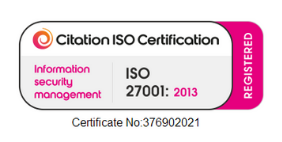How does VoIP Telephony work?
VoIP, or Voice over Internet Protocol, is a technology that allows for telephone calls to be made over the internet instead of traditional telephone lines. This has revolutionised the way people and organisations communicate and has made it easier and more affordable to make and receive calls from anywhere in the world.
What is VoIP?
VoIP refers to the transmission of voice and multimedia content over the internet. VoIP works by converting analogue voice signals into digital data packets and transmitting them over the internet. This process allows for calls to be made anywhere in the world, as long as there is an internet connection, making it a cost-effective and resilient alternative to traditional telephone networks.
VoIP and hosted or cloud telephony are often considered to be the same and the terms used interchangeably. However, it’s worthwhile understanding the difference. Without getting too technical, VoIP is the technology used with cloud based telephony and unified business communication software utilising VoIP along with additional features that can enhance your business communication and collaboration.
How does VoIP telephony work?
To make a call using VoIP telephony, a person can use any device which connects to the internet such as a computer, a smartphone, or a dedicated VoIP phone. The device is then connected to the internet and the person can make a call by dialling the number or selecting the contact they want to call within their telephony system.
Once the call is initiated, the analogue voice signals are converted into digital data packets and transmitted over the internet. The packets are then reassembled into their original form at the receiving end, where they are played back as an audio signal. This process is repeated in real-time, allowing for a seamless conversation.
What equipment is needed for VoIP?
The main requirement for VoIP is to have a high-quality and reliable business internet connection.
Aside from this, VoIP can be used from a range of devices such as laptop, desktop or mobiles. You can also purchase VoIP desktop phones or headsets.

VoIP features
VoIP offers businesses a number of features over and above a typical phone call.
Features can vary depending upon the VoIP provider, however the most common features include;
- Take calls from multiple devices supporting remote working and on-the-go via mobile app
- Increased sound quality and reliability
- Call recording
- Call analytics (basic)
- Call routing
- Auto attendant
For more advanced features such as advanced reporting, omnichannel communications, enhanced security features it is worth considering cloud telephony or unified communications as a service, UCaaS.
What are the benefits of VoIP telephony for businesses?
1) Cost Effective
One of the biggest benefits of VoIP is cost-effectiveness. By calls being routed over the internet securely, organisations can avoid high, long-distance calling fees, making it a more affordable option for their communication needs. As a result, companies can allocate more resources towards other organisational needs, such as marketing, research & development, or employee training.
2) Flexibility
As VoIP technology allows users to make and receive phone calls from anywhere with an internet connection, this gives them the freedom to work remotely and stay connected with clients and colleagues. With the rise of mobile devices, VoIP has become even more flexible, as users can now make and receive phone calls on their smartphones or tablets using mobile VoIP apps, cloud based phone systems or unified communications as a service, (UCaaS).
This means users can stay connected to their work phone number and contacts, even when they are away from their desk or office. VoIP also offers additional features like video conferencing, instant messaging, and file sharing, making it easier for remote workers to collaborate and communicate with their teams. Overall, the flexibility of VoIP systems provides users with the freedom to work from anywhere, stay connected, and remain productive.
3) Integration
The integration capabilities of VoIP provide several benefits for organisations. VoIP systems can integrate with a variety of other organisation tools, such as customer relationship management software (CRM), email, and calendars, enabling organisations to streamline their communication processes and increase efficiency. This integration allows for automated call logging, saving employees time from having to manually log calls in other back-office applications and software.
A VoIP system can overlay an omnichannel system by providing a seamless integration of social media apps and SMS messaging. This allows organisations to communicate with customers across multiple channels, including voice, text, and social media in a more efficient and effective manner.
By integrating VoIP with other organisation tools, organisations can improve their customer service by providing a more personalised experience, ensuring that customer data is up to date and minimising response times. VoIP’s integration capabilities can help organisations to become more efficient, reduce manual work, and improve their communication processes.
4) Mobile & Desktop Apps
By opting for a trusted VoIP provider such as Matrix247, you can gain access to a software application that enables you to accept and initiate calls on your desktop or mobile device.
This functionality is particularly crucial in today’s work-from-home environment, as these apps facilitate phone calls, conference participation, text messaging, and other features, all without requiring a separate desk phone. Ultimately, the decision to use a desk phone or not rests with the user.

5) Unified Communications
VoIP enhances your team’s productivity by employing a Unified Communications (UC) approach, which integrates all of your organisation’s communication tools into a single platform. This eliminates the need for multiple disjointed applications and streamlines the communication process.
Unified communications (UC), empowers employees and enhances customer experience. In simple, UC is one integrated solution for telephony, instant messaging and video conferencing whilst the opportunity to integrate your CRM, webchat and any other software you need in your business.
VoIP allows organisations to tap into the benefits of a hybrid workforce by making it easy for employees to collaborate with each other from anywhere in the world.
6) Business Continuity
The business continuity benefits of VoIP telephony are particularly relevant in light of The Great British Switch Off, where traditional phone lines are being phased out across virtually the whole of the UK by 2025 at the latest.
VoIP telephony connections are replacing the traditional analogue and ISDN lines, they can ALSO connect to cloud-based telephony meaning the data is backed up at multiple data centres, adding an additional layer of continuity that simply isn’t possible with on-premise telephony systems.
VoIP telephony vs landline phones
As highlighted above, traditional phone lines are becoming end of life with VoIP and SIP leading the way in the future of telephony and business communication. If you haven’t already made the switch we highly encourage you to get in touch with us today and we can help you navigate the transition smoothly.
Alongside the many benefits we’ve listed above, both VoIP and cloud based telephony systems offer businesses many features to stay competitive and enhance your communication in today’s modern world.
Switching to VoIP
Making the switch to VoIP offers businesses many benefits however it’s important to carefully plan the transition to ensure it meets your needs and you experience a smooth process. It does involve analysing your existing IT infrastructure and operations, so it’s always best to seek the advice of a service provider, such as Matrix247.
We will take a practical approach to prepare you and your team for the switch, minimising any disruption for a successful switch.

How to select the right VoIP for your business
With so many different business telephony options now available it can be tricky to determine what’s going to work best for your business. Your first point of call is to understand more about VoIP, cloud telephony and UCaaS solutions as they can offer businesses different features and benefits. Don’t worry, if you’re still confused you can get in touch with our team today who will help to advise you once they’ve learnt more about your business and how you communicate both internally and externally.
If you’re ready to get started with VoIP our team will spend time understanding your needs then we can discuss what features and benefits your team and business requires. Unlike other providers, we work in partnership throughout with a particular focus on the consultancy and advisory role to ensure we get the right solution for you. Other considerations which we will discuss with you is how many users are required, and what the return on your investment profile would be suitable.
If you are still unsure about what business phone system is right for you then speak to one of our friendly team members today who will be happy to help you find the solution specifically for your business.
FAQs about how VoIP works
Can you keep your existing phone number when switching to VoIP?
Yes, we can typically port your number across when switching to an alternative telephony system such as VoIP allowing you to maintain your current phone number even after switching to a different service provider. It is worth checking with us, or your provider beforehand though to ensure a smooth transition.
Is there a backup for VoIP if your internet connection goes down?
As VoIP is dependent upon a reliable internet connection to make phone calls, an outage would have an impact on your VoIP service. Luckily, in this day and age, power outage or loss of internet connections is increasingly rare. However, in this scenario VoIP can be accessed or used on mobile devices which can utilise mobile data to make and receive business phone calls as an interim solution. Some VoIP systems do have backup solutions so it’s worth discussing your needs with one of our expert team members.
Does VoIP offer call routing for team members?
Yes, call routing is a pretty standard feature for VoIP. It’s important to discuss your requirements and features with us so that we can help advise you on the best possible telephony solution, whether that be VoIP, hosted cloud telephony, or UCaaS.
Latest Blogs News Articles Events

Matrix247 has been acquired by Focus Group
Focus Group, a leading provider of business technology, has acquired Matrix247 to strengthen comms and managed IT portfolio.

Top IT trends for SME’s in 2025
By leveraging advanced technology, SMEs can improve operational efficiency, gain a competitive advantage, and provide quality customer experiences despite the ongoing difficulties.

Cloud Phone System Alternatives
There are alternatives to cloud telephony, which are typically based on older technologies as many businesses haven’t made the switch to modern communication methods.




